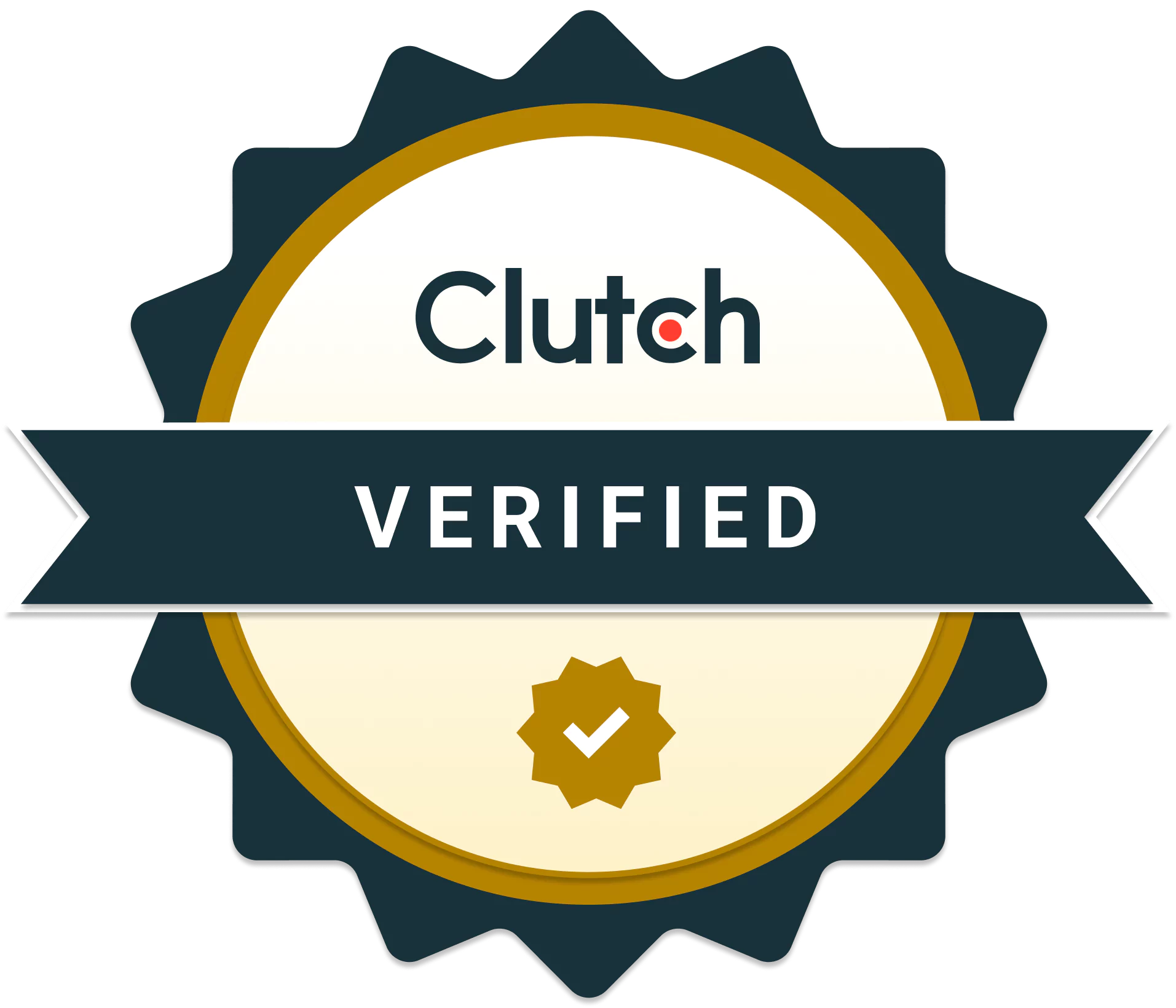How to Choose The Best eCommerce Platform in 2024?
The E-Commerce industry is already experiencing a boom in its growth in the current year and upcoming years. If you are in the mood of upgrading your software to E-Commerce to ace the giant pie, then we believe you are making the right decision. But picking the right E-Commerce platform is not a cakewalk. It is not so easy and is one of the most crucial decisions you make in your early journey of E-Commerce.
To do the job of choosing the right E-Commerce platform for your business, we have created this guide to make you choose the right and best E-Commerce platform. So, keep reading the article to enhance your knowledge.
![]()
How selecting the best E-Commerce platform directly impacts your business?
Do you think building an E-Commerce business is easy? If yes, then you are wrong! Building an E-Commerce business is as complicated as a physical retail business. It also includes strategies and implementations like a physical retail store requires. It is not all about only listing your products on the platform, and it is more than that.
But when you think about an eCommerce platform, you have to be assured of these four things that your site will dictate:
- Growth: How fast can your business grow?
- Running costs: This is the most vital thing to know what cost will your business incurred during the running period, maintenance cost and other requirements.
- Customer engagement: How can you make customers interact with your business ecosystem?
- Objectives: The best E-Commerce platform will help your business to reach its ultimate goal.
Mainly businesses focus on the skin-branding and content of the business, but the main focus needs to be customer engagement, business process and lead generation. These are the main factors that will help a business determine whether it is making a healthy ROI on the opted E-Commerce platform.
What is the need for an E-Commerce platform?
To explain it in simple words, if your business does not have its online identity, you can’t stand shoulder to shoulder with your competitors. Whether you are a B2B or B2C business, you need to stay alert about your online presence. That is the place from where you can get visible to your customers, clients and employees.
E-Commerce platforms are one of the most important parts of your online business that provides you with the space to locate your business. You can efficiently execute complex functions both in the backend and frontend. This includes mobile commerce, inventory management, warehouse fulfillment, CRM and web design.
Which is the right E-Commerce platform?
Picking the eCommerce platform depending on its popularity is never a good idea. One needs to look for the eCommerce platform that successfully delivers the objectives and outcomes that you have set for your business in the long run.
The goals and objectives you have set might be easy to ace, such as creating a new market, increasing revenue, or customer engagement. Or the objectives can be complex and challenging where multiple stakeholders are involved in having conflicting objectives. This is the page where strong leadership is needed to take everyone on the same line; without this, your eCommerce business will get stuck and struggle to start. Also, it would be best if you are looking for an eCommerce platform that perfectly fits your technical team’s expertise.
Another reason you should look for the best eCommerce platform is the frequent change trend. If you are running your brand in a domain that encounters frequent changes, then you should look for the platform that changes and adjust with your business environment like your business.
Different Types of eCommerce Platforms
This is more of an eCommerce platform than a method. It needs you, someone, to hire to develop it. Likely, we told you earlier it is most common these days. If your business niche is specific and domain-oriented and you cannot find the platform that suits it perfectly, then this is what you need to know!
Traditional platforms
This is the platform where you need to purchase the license first and pay the license fee upfront to pay annually to renew it. Your web development team will then create and customize your website on the platform and install it either into the cloud or on-premise.
Open-source platforms
This is quite similar to traditional platforms, but here the upfront license fee is not incurred. But you need to pay for initial ongoing development, implementation, migration and upgrades. Magento is an excellent example of open-source eCommerce development.
Cloud platforms
This eCommerce platform is a little dirty. Many of the open-source platforms bolt themselves on the hosting system and mention themselves as a cloud platform. A few examples are Demandware, Volusion and Magento Enterprise Cloud.
SaaS platforms
Saas platforms are built on a single codebase. This eCommerce platform experiences the related technology on a fixed monthly fee, which covers maintenance, server use, upgrades and security.
Why are SaaS and Cloud Hosted Platforms Different?
Many people think the cloud-hosted platform is the same as SaaS platforms. But here, the picture is entirely different. Many cloud-hosted platforms are similar to open source or traditional platforms and still need timely install upgrades and maintenance. Also, you have to get assistance from the experts to make it more smooth and once it is done, the platform is all yours.
On the other hand, you do not need a physical server or cloud hosting provider for a SaaS-based eCommerce platform. You are only left to pay the monthly subscription fee to access the software application that your browser has already developed. Also, SaaS requires no maintenance as the providers maintain them.
eCommerce Platforms Development, Maintenance & Cost
When thinking of finalizing an eCommerce platform, many people overlook the actual cost incurred in running an eCommerce website. It would be best if you were known about the initial build & development cost, but there is more than that. This is what extra you should look for when thinking about switching to the eCommerce website.
Maintenance costs
If you choose an open-source or traditional eCommerce platform, you need to look for its maintenance cost and other expenses your site incurred. Also, the maintenance cost may differ depending on the complexity and technical interface of your website. You might need to hire a technical team to operate it.
Upgrading costs
Your open-source platforms need a timely update and if you miss on that, it might cost you big. Hackers and cyberattacks can easily steal your data. But in the SaaS platform, all the updates are covered within it.
Improvement costs & adding new features
This keeps on changing. The consumer keeps updating themselves with time, so you also need to maintain the relevancy and keep on adding new features and making timely improvements in your eCommerce platform.
UX changes costs
Also, making new improvements or adding new features, you need to change the entire user experience of your E-Commerce website. And, this is the part of the change in trend and consumer behavior.
What factors should you consider when selecting an eCommerce Platform?
After keeping a note of the development and operation of your eCommerce platform, there are things to consider when choosing the right eCommerce platform for your ever-growing business.
Experience & Expertise of the Vendor
Check thoroughly if the vendor offering you the services is outfitted with the right experience and expertise to meet all your technical requirements and needs. Also, make sure they have the industry knowledge you are into. Make keen market research, do case studies, go through customer reviews and ensure that the vendor is sufficient with all the technical qualities needed by you.
Support
When you are operating a large-scale business on an online platform which is entirely new to you and things might frequently get wrong, too, right? There is no space for things going right every time on the technical hand, so looking for the platform offering 24*7 customer support is a must. Look for a partner who can assist you quickly over a phone call.
Scalability
When your business grows, are you sure that your eCommerce business can grow with it? You need to ensure this as your eCommerce platform is the king point of your business and its growth stoppage might affect your business scalability in the long run.
SEO-friendliness
Having an eCommerce website with SEO-friendly features is another best thing added to the list. This will help you to rank your business on the search engine easily.
Mobile-friendliness
Nowadays, a massive bunch of the country’s population prefers to shop online through their mobile phones. Hence, having a mobile responsive eCommerce platform will also add advantages to your business leading to enhancing your sale.
Security
To be last but not the least and not to ignore things is security. Security of your online data should be your priority. You need to look for a platform that takes financial transactions with all the needed security protocols.
Essential Features of Good eCommerce Website
eCommerce platforms are enriched with features and it is hard to choose the right for your business, right? Consider the below eCommerce functionality checklist before establishing your online store.
Robust catalog
Do you know your product catalog is the most important part of your business? Not just a part, it is the heart of your business. It would be best if you looked for a product catalog that is easy to update. Also, confirm that the product catalog the platform is offering is matching with your business niche and requirements or not!
Flexible pricing
You might wish to run promotions, discounts and sales-not only this; you might also want your eCommerce business to support all the country currencies, right? So, charging different fees for various geographical locations becomes easy.
Website personalization
A personalized experience is what online buyers look for now and then. Look for the eCommerce platform that shows a personalized recommendation to the buyers depending on their last purchase to make their shopping experience worth satisfying.
Flexible shipping
With time even the shipment part has drastically changed and turned to be faster than before. Now, the customers ask for same-day delivery or next-day delivery. So, looking for an eCommerce company with a fast shipment logistic and distribution company is necessary.
eCommerce analytics
There is a range of important eCommerce KPIs and metrics that you should be monitoring closely and in-built functionality is the perfect way to do it. Luckily, we have a good number of eCommerce platforms having their analytic platforms.
Google Merchant
It is important to do Google merchant integration. This allows businesses to list their products on the relevant Google shopping results. Also, this will quickly help you gain traction on the product listing page. This feature will help you to reach the customers quickly, crossing the borders of the website.
Facebook integration
When your business has a Facebook business account, this calls for an integration that will help you show your product on Facebook, Facebook Messenger, and Instagram. After creating a catalog on Facebook, you can easily use it in multiple ad production and so on.
Customer review system
Customer reviews can immensely impact your business success rate. Nowadays, people first look for reviews and ratings before buying any service or product from the business website. Hence, an integrated customer review system or third-party review system is essential. If you have it, then half of the game is already in your favor.
Automatic tax & account calculation
If you are running a business worldwide, then following the tax laws of other countries and their currencies is important. Failing on this might cost you high and lead to legal actions.
Various payment gateways
Having different payment gateways options like a credit card, debit cards, PayPal, PayU and more can easily reflect the increase in sales. Also, if your business is operating on international platforms, you need to have local payment gateways to ace the trust of the localities.
Single customer view
Having a customer view will help you track the activity of the customer and understand their buying behavior. What they exactly purchase the most. This will result in big success.
Headless commerce
Smart wearables and voice-assistant devices are both going to result in a rise in commerce sales. You require an eCommerce platform that delivers activities to multiple touchpoints and for that, you need headless commerce.
Mistakes to eliminate when selecting the right eCommerce platform
eCommerce platforms built on rigid, inflexible infrastructure lead to sluggish and slow performance. If you feel like making a small change on the platform, you might have to deploy the complete system that can also result in long downtimes. Hence, look for the eCommerce platform with inbuilt micro-services that can individually be maintained and managed and connected with the API calls. This will lead to flexible and efficient management and usage for your customers and team.
Do not choose a platform that is not scalable
As mentioned above having a platform with good scalability is important for any business. Platforms with hard-to-scale capacity will be a hurdle in your business’s growth because of their poor infrastructure and local server.
Avoid excessive features
This is also somewhat relatable to scalability, where you invest in not-needed features. This way you are spending your money on what you do not require for your business. Pick a platform with minimum needed features and upgrade itself when there is the requirement of growth in the business.
Having no-objectives
Do not miss an objective. Before starting this article, we have already mentioned that having a predefined objective is important. If your business aims to get over an eCommerce platform, this will make your job much easier. So, keep an objective, or else you will end up choosing the wrong eCommerce platform.
Do not customize wrong
What many of the brands do is pick the wrong eCommerce platform and customize their internal requirements and systems to fit the platform. But when you are aware of your brand’s needs and requirements before, customization is not required. You can choose the platform accordingly and add more features in the future, depending on the requirement.
Pick the best for yourself!
The sale of eCommerce businesses is booming. Choosing the right eCommerce platform to intensify the sale of your business isn’t easy and with the increase in competition, you should also focus on getting the best for your business. E-commerce Platform comparison can help you find the suitable platforms. Hence, we have listed down some of the best eCommerce platforms that will help you in defining your business in an all-new way.
Shopify
Shopify is the best in the eCommerce industry. It is flexible to your needs and has all you need in your eCommerce platform. From development to payment and to shipping everything is smoothly delivered by the platform. Additionally, it is easy to install and develop your shopify ecommerce store with the help of certified professional developers.
BigCommerce
Skullcandy & Ben & Jerry are the big names behind another most famous eCommerce brand BigCommerce. It enables you to customize, build and design your online store and easily sell and market products all without using a line of code.
Magento
Magento is the best eCommerce platform amongst all. It has a client base like Cisco and Nike. In addition to content staging, page builder, instant purchase and merchandising, Magento also offers advanced features like customer service, order management, business intelligence, inventory management and cloud deployment. Magento development service providers can craft a rich user experience with powerful end-to-end solutions.
WooCommerce
For WordPress, WooCommerce is a famous eCommerce platform. It powers around 28% of online stores with more than 64 million downloads. It can easily set up on a WordPress website and convert into eCommerce stores. Also, extensions can be added to integrate one-click selling, payment gateway, email marketing and many other platforms.
Wix
Wix is a well-known eCommerce platform that is perfect for starters who want to start their small stores. Although, the platform is not filled with features, but is loaded with a lot of templates and easy to install and use handles. It is having top-notch customer support across the industry.
Now, it is time for you to start selling to make money in no time without getting hit down with the design and coding concerns by trying these listed platforms. Depending on your business needs and requirements pick the king of all.
It’s a Wrap!
This is what you need to know about an eCommerce platform before deciding on one for your business. Now, if you have an online store or are planning to start one, we recommend you go through this article in depth. This might answer a lot of questions.
Still confused? We’ re happy to help. Connect with Rock Technolabs now!







